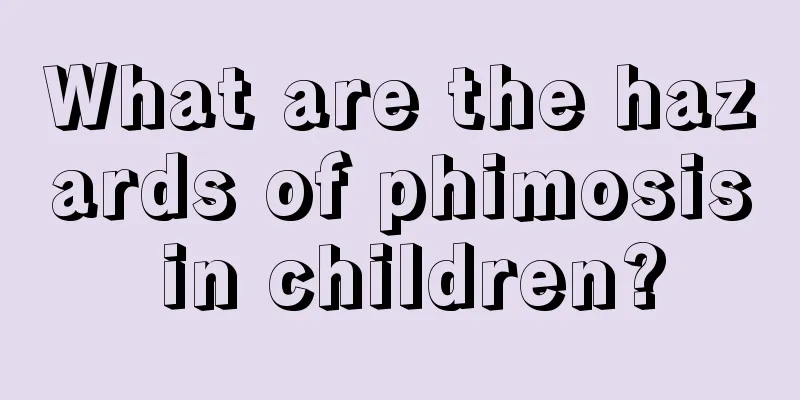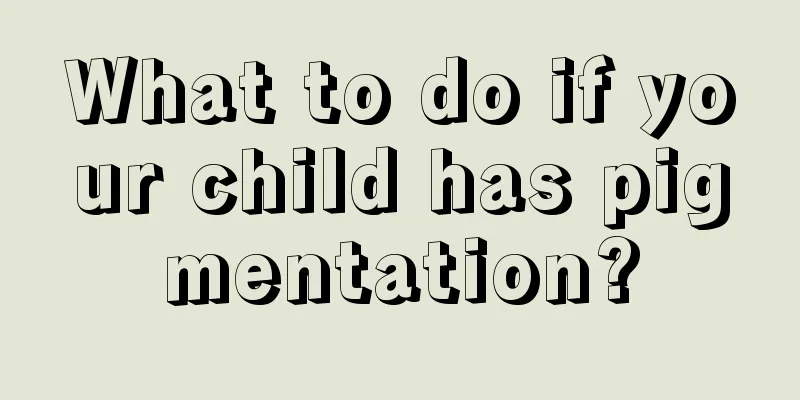Why does an eight-year-old child sweat when sleeping at night?

|
Every baby is very important to a family from the moment he is born, so during the child's growth, parents always pay attention to the child's physical changes. So why does an eight-year-old child sweat while sleeping at night? For this problem, we must analyze it specifically and not draw conclusions blindly. Let us learn about it together. During childhood, the skin is very tender, contains more water, has abundant capillaries, has active metabolism, and the autonomic nervous system regulation function is not yet perfect, so it is easy to sweat during activities. If children are too active before going to bed, the metabolism of various organs in the body will be active, which can increase the body's heat production. During sleep, the blood vessels in the skin will dilate, the sweat glands will secrete more, and the child will sweat profusely to help dissipate heat. Secondly, eating before going to bed can enhance gastrointestinal motility, increase gastric juice secretion, and increase sweat gland secretion, which can cause children to sweat more after falling asleep, especially within the first 2 hours of falling asleep. In addition, if the indoor temperature is too high, or the quilt is too thick, or electric blanket is used, it can cause profuse sweating during sleep. When children have night sweats, the first thing to do is to find out the cause in time and give appropriate treatment. Drug treatment is generally not recommended for physiological night sweats. Instead, appropriate measures should be taken to eliminate factors in life that cause high fever. For example, if a child exercises too much before going to bed, or eats a high-calorie meal that causes night sweating, the child's activity level and food intake before going to bed should be controlled. This will also help the child sleep and control obesity, and is beneficial to the child's physical and mental health. Some children sweat profusely at night because the room temperature is too high or the quilt is too thick. The bedroom temperature in winter should be between 24℃ and 28℃; the thickness of the quilt should be increased or decreased with changes in temperature. Generally speaking, if parents pay attention to the above-mentioned factors that may easily cause increased heat production and overcome them, the chances of night sweats will naturally decrease. Even if children occasionally have one or two severe thieves sweats, there is no need to worry too much. The main loss of body fluids and salts due to night sweats can be fully replenished through a reasonable daily diet. Sweating is a normal physiological function of the human body, but sometimes sweating is caused by certain diseases. Babies tend to sweat easily after falling asleep at night, often wetting their vests or sheets, and they are prone to getting sick if they catch a cold. This phenomenon is medically called "night sweats", which may be a manifestation of calcium deficiency in children and an early manifestation of rickets. Parents must pay attention to this problem. It turns out that in addition to the growth and development of bones, the development of various body systems also requires the participation of calcium. Calcium deficiency will cause the body's self-regulation system to be disordered, causing a series of neurological symptoms. Night sweats and excessive sweating are common phenomena. The characteristics of this type of sweating are: it mostly occurs in infants and young children aged 3 months to 2 years; excessive sweating on the head causes the baby to often shake his head and rub the pillow, and in severe cases, "baldness on the pillow" occurs; in addition, the sweating has nothing to do with room temperature or seasonal changes; the sweating is relatively severe, sometimes soaking the quilt; accompanied by restless sleep and crying at night. The child has symptoms of excessive sweating and may have been calcium deficient for 3 months. Infants and young children have poor ability to regulate heat and cold, so changes in temperature can easily cause children to sweat. How to distinguish between the two situations? First of all, sweating caused by temperature does not have the characteristics of sweating caused by calcium deficiency mentioned above; also, healthy babies sweat a lot after falling asleep at night, often half an hour after falling asleep, and sweating may also occur on the chest and back; also, sweating is not serious and will not wet the quilt. Of course, the easiest way to verify is to take your child to the hospital for a blood calcium test. Because children are young, their physical fitness is relatively poor, so their resistance and immunity are relatively poor. Therefore, when an eight-year-old child sweats while sleeping at night, it is best for parents to take the child to a regular hospital for a comprehensive physical examination. Only in this way can the child grow up healthily, and of course parents will be happier. |
<<: What's going on with white spots on my baby's neck?
>>: What are the symptoms of ADHD in 5-year-old children?
Recommend
Why can't the baby wake up?
Many of us know that newborn babies sleep a lot, ...
The newborn struggled hard and his face turned red
Many babies are born with some minor problems. Ba...
What are the reasons why children often have hoarse voices?
Hoarseness is very common in daily life. I think ...
What are the treatments for snoring in children?
Snoring in children is a problem that many parent...
What kind of soup is better for primary school students to nourish their brains?
Primary school students are children. They are th...
What should I do if my child has a bump on the back of his head?
Children love to play, and sometimes it is common...
Should children with high white blood cell count use penicillin?
Whether a child with high white blood cell count ...
What to do if your baby's palms and soles are hot when he is one year old
The child has just come into this world from the ...
Do mothers know the height standard for two-year-old babies?
Every mother has been looking forward to her chil...
How to stimulate appetite and strengthen spleen of children?
Nowadays, many children are spoiled by their pare...
What should I do if there is a lump at the injection site after vaccination?
When babies are just born, they will get some vac...
What are the symptoms of nephritis in children?
Many friends do not know that nephritis can occur...
What are the dangers of root canal treatment of deciduous teeth?
Although teeth are extremely strong, they are ver...
What to do if baby eczema keeps coming back
For parents, the most important thing is their ba...
How can children grow taller quickly
How tall a child can grow depends on many factors...









